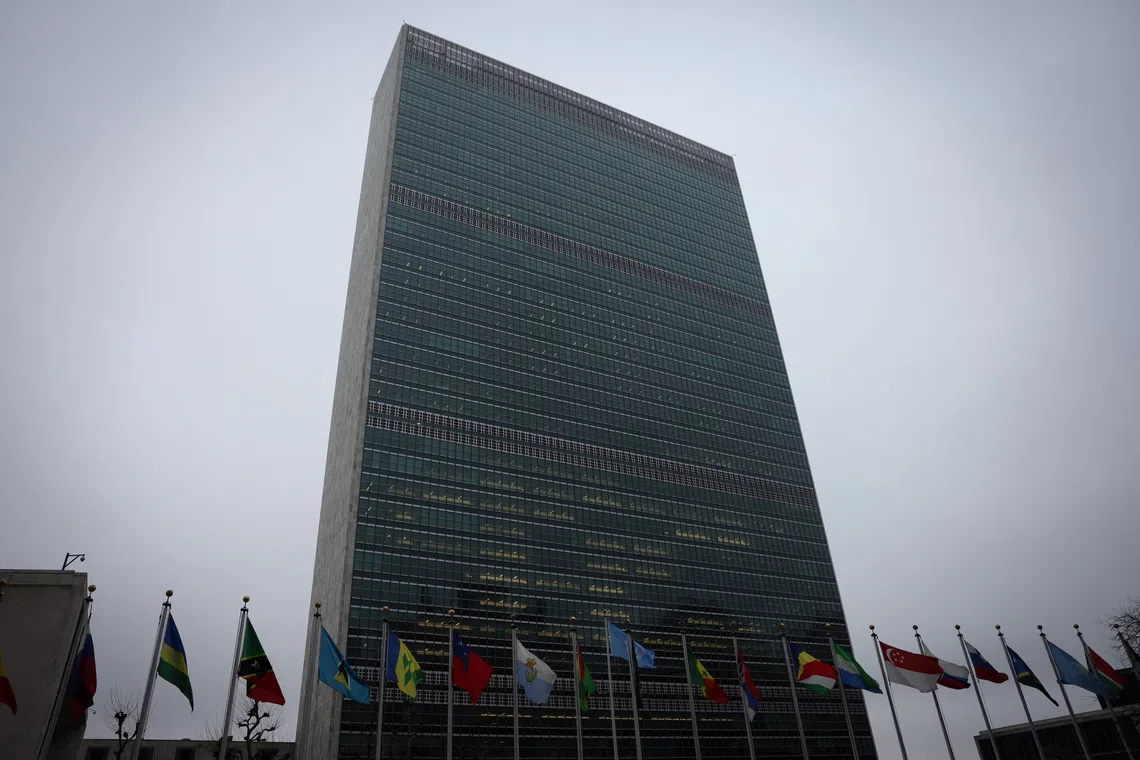UN Security Council members voice concern about US-Venezuela tensions
Sign up now: Get ST's newsletters delivered to your inbox

At the UN Security Council session, countries called for de-escalation and dialogue to resolve tensions between the US and Venezuela, and adherence to international law.
PHOTO: REUTERS
Follow topic:
WASHINGTON – UN Security Council members on Oct 10 expressed concern about escalating tensions between the US and Venezuela
Russia’s UN Ambassador Vassily Nebenzia told a meeting of the 15-member UN council that Venezuela had every reason to believe the US was ready to move from threats to action against it.
Countries including US allies France, Greece and Denmark called for de-escalation and dialogue to resolve tensions, and adherence to international law.
The United States has struck several vessels allegedly carrying drugs off the coast of Venezuela in recent weeks. The US representative to the UN meeting, Mr John Kelly, said Washington “will not waver in our action to protect our nation from narco terrorists”.
The strikes – part of what the Trump administration has called a conflict with drug cartels – have alarmed Democratic lawmakers and raised questions as to their legality as Mr Trump expands the scope of presidential power.
Mr Nebenzia said Russia condemned the strikes as gross violations of international law and human rights, adding that “boats that people were on were simply fired upon in the high seas without a trial or investigation”.
He said this was done “according to the cowboy principle of ‘shoot first’”.
“And now, we’re being asked to retroactively believe that there were criminals on board,” he said.
Venezuela’s UN Ambassador Samuel Moncada told the UN meeting that based on the US military build-up in the region and Washington’s “belligerent action and rhetoric”, his country was “facing a situation in which it is rational to anticipate that, in the very short term, an armed attack is to be perpetrated against Venezuela”.
Panama’s Deputy UN Ambassador Ricardo Moscoso said that while his country recognised legitimate concerns about drug trafficking, piracy and other illicit activities in regional waters, “we emphasise that beyond military responses, it is possible to confront this scourge through coordinated and sustainable strategies”.
“Panama believes that the transnational threats facing our region demand joint responses based on respect for international law and supported by a shared commitment to peace and stability in our hemisphere,” he said.
Paris supported multilateral initiatives to curb trafficking and strengthen border controls, said France’s deputy UN envoy, Mr Jay Dharmadhikari, who added that this must be done with respect for international law, including human rights law and “in this context, states must refrain from any unilateral armed action”. REUTERS

